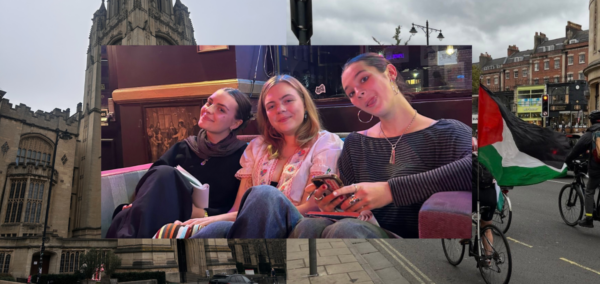
Mother of Nottingham attack victim urges police chief to resign after ‘horror’ decision
‘I did not think my opinion of this force and its leadership could sink any lower’
The mother of one of the Nottingham attack victims has called for a police chief to resign after an unsuccessful complaint against a local newspaper.
Nottinghamshire Police complained to the Independent Press Standards Organisation (IPSO) about Nottingham Post’s coverage of the attacks and murders of Barnaby Webber, Grace O’Malley-Kumar and Ian Coates.
Barnaby’s mother, Emma Webber, is calling for the police chief constable, Kate Meynell, to step down. Alongside this, she has also called the force’s actions “appalling” since the media coverage of the attacks last June.
Nottinghamshire Police had complained to IPSO about the news site’s coverage, allegedly claiming journalists had been asked to sign a “non-disclosure agreement” concerning information surrounding the killer, Valdo Calocane, and two reports made against him about stalking.
Despite this, the police claimed it was inaccurate to refer to it as a “non-disclosure agreement”. After a four-month long investigation the complaint was not upheld as the Nottingham Post wasn’t seen in breach on any IPSO regulations, according to Yahoo! News.
In an open letter, speaking on behalf of University of Nottingham student’s family, Mrs Webber said: “It was with absolute horror and disbelief when I was made aware that the Nottinghamshire Police force had taken it upon themselves to make an official complaint to IPSO towards this outstanding publication. Having read their extensive list of ‘complaints’ I am beyond disgusted. I did not think my opinion of this force and its leadership could sink any lower.
“But it has! We feel this was a weak, futile, ill-judged, and quite frankly abhorrent attempt to quash the freedom of reporting. Every single story and news item was entirely credible, relevant; and whilst damaging in reputation to various agencies and individuals; was most certainly in the public interest.”
Most Read

The victims of Calocane’s attack: Barnaby Webber, Ian Coates, and Grace O’Malley-Kumar
She added: “I am saddened that the editor and her team at the Post have been through such a stressful period whilst this ‘complaint’ was considered. But I am gladdened to know that not a single part was upheld and their integrity and honour are intact.
This is something I personally feel the Chief Constable and her team do not have. As a family we have written to the Police Crime Commissioner, Gary Godden, to express our concern and dismay. We call for Kate Meynell to receive immediate disciplinary action. Preferably dismissal.”
The full open letter is available to read here.
Additionally to her open letter, Mrs Webber and her family had written to Nottinghamshire’s Police Crime Commissioner, Gary Godden, concerning the force’s conduct. The Independent Office for Police Conduct (IOPC) has an ongoing investigation concerning the possible failings surrounding the three killings and a media briefing they held in February due to various complaints from the relatives.
Not only is the IOPC investigating the media briefing, but they are also exploring the nature of how Nottinghamshire Police informed the families of the death of their loved ones and the support that was put in place to help them through the loss.
Assistant Chief Constable Rob Griffin previously admitted Nottinghamshire Police had been unable to find Calocane in the nine months after a warrant was issued for his arrest in September 2022 – when he had failed to appear in court after being charged with assaulting a police officer.
When approached by The Tab about Mrs Webber’s open letter, a spokesperson for Nottinghamshire Police said: “On the advice of the National Police Chiefs’ Council, we held a non-reportable briefing for the media following the Nottingham attacks in June 2023.
“These briefings are standard practice, facilitated by the NPCC and are held to help and inform media with their reporting.
“At no point did we ask any media organisation to sign a non-disclosure agreement, which is a legally binding document.
“The Independent Press Standards Organisation (IPSO) acknowledged this in their findings, admitting that Nottinghamshire Live “had not signed a legal document”, however they did not feel that their reporting on this matter was “significantly inaccurate”.
“For this reason, IPSO decided Clause One of the Editors’ Code of Practice, which is accuracy of reporting, had not been breached.
“We understand the vital role of the media in holding organisations to account. Submitting a formal complaint was not a decision that was taken lightly, however when we notice inaccuracies, it is only right that they are challenged.
“Despite being disappointed with the findings, we have decided not to appeal the decision.
“We remain fully committed to the IOPC investigation and it would not be appropriate to comment any further until this has been completed.”
In a separate statement made to the Nottingham Post, the spokesperson added: “While the committee acknowledged that the parties had not signed a legal document, the committee noted that press that wished to attend the briefing first had to confirm in writing that they ‘agree[d] that this is a non-disclosure briefing, none of the information in this briefing is for reporting’ and that the complainant made clear that members of the press would not ‘be invited into the meeting unless [they] can confirm and accept the above with an email’.
“In advance of the meeting, the complainant had repeatedly referred to the briefing as a ‘non-disclosure briefing’ and following the briefing as a ‘non-disclosable briefing’. In circumstances where the publication was required to commit in writing not to report the information which was disclosed at the briefing as a condition of attendance, the committee did not consider that it was significantly inaccurate to describe the arrangement in the terms used by the newspaper.
“For these reasons, the committee did not consider the articles and social media posts’ references to the briefing to be inaccurate, misleading or distorted and therefore, there was no breach of Clause One.”
Feature image via Youtube



















